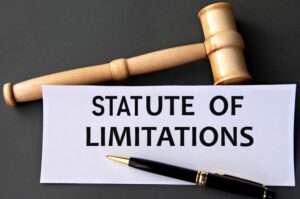A fender bender may look like a minor accident from the outside, but the reality can feel very different when you’re the one involved. Even low-speed crashes can leave you with painful injuries, mounting repair bills, and disputes with insurance companies. If you’re asking yourself can you sue after a fender bender in Pennsylvania? The answer depends on the details of your policy, the extent of your injuries, and the laws that apply to drivers in the state.
Having a skilled attorney by your side helps you understand your options and protect your right to recover fair compensation. Whether your case involves minor vehicle damage or injuries that limit your daily life, an experienced Pennsylvania car accident lawyer can guide you through your next steps during a free consultation.
Schedule A Free Case Consultation
Key Takeaways: Fender Bender Accidents in PA
- Fender benders may involve more than just cosmetic damage; they can also lead to injuries that show up later.
- Pennsylvania law treats accidents differently depending on whether you have full tort or limited tort coverage.
- Some drivers with limited tort policies can still sue if their injuries meet the serious injury threshold or if exceptions apply.
- State law gives most injured people two years to file a lawsuit after a car accident.
- Insurance companies often try to reduce payouts, so having legal support may help protect your claim.
What Qualifies as a Fender Bender in Pennsylvania?

Not every accident involving two cars counts as a fender bender. Pennsylvania drivers and insurers often use the term to describe low-speed crashes with less obvious injuries or damage. Even so, the impact can still cause lasting problems.
Minor vs. Major Accidents Under Pennsylvania Law
A minor accident usually involves low property damage and injuries that appear less severe. By contrast, major accidents often involve higher medical costs, long-term injuries, or significant damage to vehicles. The law doesn’t define “fender bender” as a separate category, but the type of accident can affect how insurance companies and courts evaluate your case.
When Property Damage Becomes a Legal Matter
When repairs cost more than what insurance offers, the issue can move beyond a simple claim. Disputes often arise over whether repairs or replacements are necessary. If your car’s value drops after an accident, you may also seek compensation for diminished value.
Pennsylvania's Accident Reporting Requirements
Pennsylvania law requires drivers to file a police report if an accident causes injury, death, or significant property damage that prevents a vehicle from being driven safely. Even for smaller accidents, reporting the incident creates a record that may help if disputes arise later.
Can You Sue for a Minor Car Accident in Pennsylvania?
Whether you can sue after a smaller crash depends largely on your insurance policy and the extent of your injuries. Pennsylvania gives drivers a choice between two types of coverage: limited tort and full tort.
Understanding Pennsylvania's Limited Tort vs. Full Tort Options
- Full tort coverage: Drivers with this coverage can bring lawsuits for both economic damages (like medical bills) and non-economic damages (like pain and suffering), regardless of injury severity.
- Limited tort coverage: Drivers pay lower premiums but give up the right to sue for non-economic damages unless their injuries meet certain requirements.
The Serious Injury Threshold in Pennsylvania
The law allows limited tort policyholders to sue if they suffer a serious injury. This usually means a significant impairment of a body function, permanent disfigurement, or another lasting effect. Courts often review medical evidence to decide if an injury qualifies.
Exceptions That Allow Limited Tort Policyholders to Sue
Some situations give limited tort drivers the right to sue without meeting the serious injury threshold, such as:
- Accidents involving drunk drivers: If the at-fault driver was under the influence, you may still bring a lawsuit.
- Out-of-state vehicles: If the other driver’s vehicle is registered outside Pennsylvania, the exception may apply.
- Intentional harm: If another driver caused the crash on purpose, you can sue.
- Uninsured drivers: If the at-fault driver lacks insurance, you can step outside limited tort rules.
What Types of Damages Can You Recover After a Fender Bender?
Even in low-speed accidents, losses can add up quickly. Pennsylvania law allows injured people to pursue both economic and non-economic damages when their case qualifies.
Economic Damages in Minor Accident Cases
Economic damages cover direct financial losses, including:
- Medical bills: Hospital visits, follow-up appointments, physical therapy, and medication costs.
- Car repairs: Repairing or replacing your vehicle and related expenses like towing.
- Out-of-pocket costs: Travel to medical appointments, rental cars, and other necessary expenses.
Non-Economic Damages and Pain and Suffering
Non-economic damages reflect the impact of the accident on your daily life. For example, lingering neck or back pain may affect your ability to work or enjoy activities. Courts consider these damages when injuries meet the serious injury threshold or when exceptions apply.
When You Can Claim Lost Wages
If your injuries prevent you from working, you may seek recovery for lost wages. This includes missed paychecks as well as reduced earning capacity if your injury limits your ability to work in the future.
How Does Pennsylvania's No-Fault Insurance System Work?
Pennsylvania follows a unique insurance system that combines elements of both no-fault and fault-based coverage. This system often leaves drivers confused about when their own insurance pays for injuries and when they can bring a claim against another driver. Knowing how the no-fault system works helps you see what benefits are available right away and when you may be able to pursue additional damages.
First-Party Benefits and Personal Injury Protection (PIP)
After a fender bender, your own insurance policy usually pays certain benefits, regardless of who caused the crash. These are called first-party benefits, or PIP coverage. Every auto insurance policy in Pennsylvania must include these benefits, although the exact limits vary depending on the policy you purchased.
Common types of first-party benefits include:
- Medical benefits: Covers hospital visits, doctor’s appointments, therapy, diagnostic tests, and medications related to the accident. Many policies provide at least $5,000 in medical coverage, though drivers can buy higher limits.
- Income loss benefits: If you can’t work because of accident-related injuries, PIP may provide a portion of your lost wages up to the policy’s limit.
- Funeral and death benefits: In tragic cases, PIP may cover funeral expenses or provide a death benefit to the family of someone killed in an accident.
These benefits apply quickly, often without lengthy disputes about fault. However, they only go so far. If your medical bills or wage losses exceed your policy limits, you may need to explore a claim against the other driver.
When You Can Step Outside the No-Fault System
Drivers may step outside the no-fault system when injuries meet the serious injury threshold or when exceptions apply. At that point, they can pursue a claim against the at-fault driver.
Dealing with the At-Fault Driver's Insurance Company
The at-fault driver’s insurance company often tries to limit payouts by disputing fault, downplaying injuries, or offering low settlements. Having legal support helps level the playing field and holds insurers accountable.
What Is the Statute of Limitations for Fender Bender Lawsuits?

Pennsylvania sets strict deadlines for filing car lawsuits. Missing these deadlines can bar you from recovering damages altogether.
Pennsylvania's Two-Year Deadline for Personal Injury Claims
Most personal injury claims must be filed within two years of the accident date. This applies whether you plan to sue for economic or non-economic damages.
How the Discovery Rule May Extend Your Filing Deadline
The discovery rule may extend the deadline if you didn’t know about your injury right away. For example, whiplash or soft tissue injuries sometimes take days or weeks to appear.
Why Waiting Too Long Can Hurt Your Case
Even if you technically have time, waiting to act can make it harder to gather evidence, track down witnesses, or build medical proof. Insurance companies may also use delays to argue that your injuries weren’t serious.
How Is Fault Determined in Pennsylvania Fender Benders?
Fault plays a major role in whether you can sue and how much you may recover. Pennsylvania follows comparative negligence rules.
Pennsylvania's Comparative Negligence Rule
Under this rule, you can recover damages as long as you were less than 51 percent at fault. If you were 20 percent at fault, for example, your recovery would be reduced by 20 percent.
How Your Own Fault Percentage Affects Your Recovery
Your share of fault directly affects the amount you can collect. If a court finds you more than 50 percent responsible, you won’t be able to recover anything.
Common Factors That Establish Liability
- Police reports that record the crash details
- Witness statements about how the accident happened
- Traffic camera or dashcam footage
- Vehicle damage patterns and skid marks
When Should You Consider Hiring a Lawyer After a Fender Bender?
Not every fender bender needs legal action, but some situations call for an attorney’s help.
Signs Your Minor Accident May Have Major Consequences
An accident may look small at first, but medical bills and long-term pain may add up. If your injuries limit your daily activities, you may benefit from legal help.
Hidden Injuries That Appear Days or Weeks Later
Whiplash, concussions, or back injuries sometimes show up after the initial shock wears off. If you wait too long, insurance companies may argue your injuries came from another cause.
Insurance Company Tactics That Require Legal Intervention
When insurers deny valid claims, pressure you into low settlements, or delay processing, a lawyer can step in to protect your rights.
How Our Attorneys Can Help
At The Oakes Firm, we understand how even a fender bender can disrupt your life. Our attorneys step in to handle the details so you can focus on recovery.
Investigating Your Fender Bender Claim
We collect evidence, review police reports, and work with experts when needed to build a strong case.
Negotiating with Insurance Companies on Your Behalf
Insurance adjusters often minimize claims. We push back by presenting medical records, proof of damages, and a clear case for fair compensation.
Proving the Serious Injury Threshold
For limited tort drivers, we help gather medical evidence to show that your injuries qualify under Pennsylvania’s serious injury standard.
Maximizing Your Compensation
We work to identify all potential damages, from medical costs and lost wages to non-economic harm like reduced quality of life.
Taking Your Case to Trial When Necessary
If the insurance company refuses to resolve your claim fairly, we prepare to take your case to court and present it before a jury.
Frequently Asked Questions About Fender Benders in PA
Do I need to call the police after a fender bender in Pennsylvania?
Yes, if the accident caused injury, death, or significant property damage. For minor accidents, calling the police can still protect you by creating an official report.
Can I sue if the other driver has minimal insurance coverage?
Yes, but recovery may be limited by the driver’s coverage. In some cases, your own uninsured or underinsured motorist coverage may help.
What if I accepted a settlement but my injuries got worse?
Once you accept a settlement, you usually can’t reopen the claim. This is why many lawyers recommend waiting until you understand the full extent of your injuries.
How much does it cost to hire a personal injury attorney in Pennsylvania?
Most personal injury attorneys work on a contingency fee basis, meaning you don’t pay upfront. The attorney gets paid only if the case results in a settlement or judgment.
Can I still recover damages if I was partially at fault for the accident?
Yes, as long as you were less than 51 percent at fault. Your recovery will be reduced by your percentage of fault.
Contact Our Car Accident Attorneys in PA Now

Personal injury cases have strict deadlines, and evidence can fade quickly. Taking action sooner gives you a stronger chance to build your case. At The Oakes Firm, we understand the stress that comes after an accident and work to handle every detail for you.
Contact our Pennsylvania car accident attorneys today for a free, no-obligation consultation. We’ll review your case, explain your options, and help you decide the best path forward.